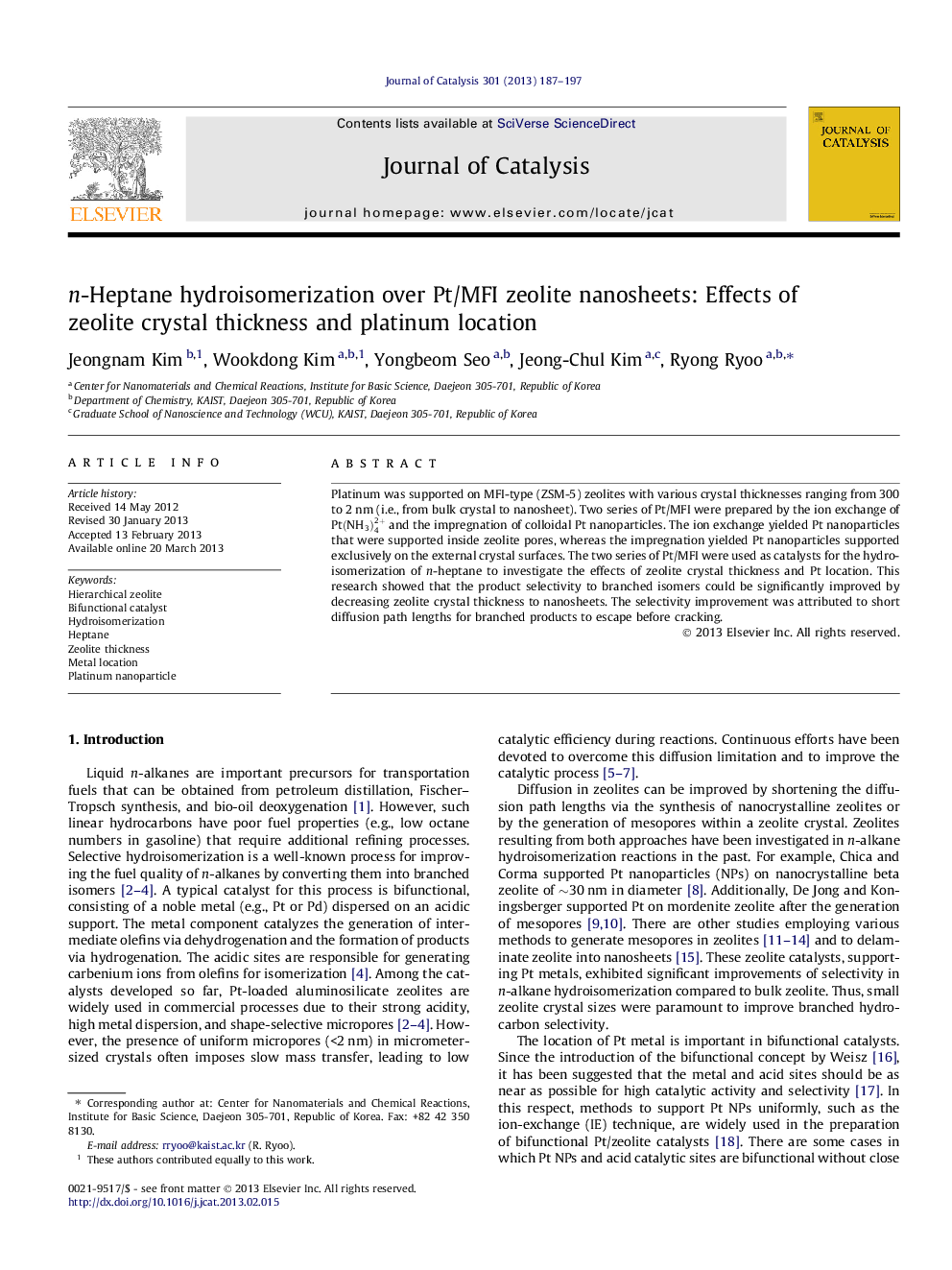| Article ID | Journal | Published Year | Pages | File Type |
|---|---|---|---|---|
| 61293 | Journal of Catalysis | 2013 | 11 Pages |
Platinum was supported on MFI-type (ZSM-5) zeolites with various crystal thicknesses ranging from 300 to 2 nm (i.e., from bulk crystal to nanosheet). Two series of Pt/MFI were prepared by the ion exchange of Pt(NH3)42+ and the impregnation of colloidal Pt nanoparticles. The ion exchange yielded Pt nanoparticles that were supported inside zeolite pores, whereas the impregnation yielded Pt nanoparticles supported exclusively on the external crystal surfaces. The two series of Pt/MFI were used as catalysts for the hydroisomerization of n-heptane to investigate the effects of zeolite crystal thickness and Pt location. This research showed that the product selectivity to branched isomers could be significantly improved by decreasing zeolite crystal thickness to nanosheets. The selectivity improvement was attributed to short diffusion path lengths for branched products to escape before cracking.
Graphical abstractPt-loaded MFI zeolites with various crystal thicknesses ranging from 300 to 2 nm were investigated for n-heptane hydroisomerization. Branched isomer selectivity was improved 2.5 times by decreasing the crystal thickness to 2 nm due to short diffusion path length for branched isomer to escape before cracking.Figure optionsDownload full-size imageDownload high-quality image (163 K)Download as PowerPoint slideHighlights► MFI zeolites were synthesized with crystal thicknesses ranging from 300 nm to 2 nm. ► Pt-loaded MFI zeolites were investigated as catalysts for heptane hydroisomerization. ► Decreasing zeolite thickness will increase isomer selectivity. ► High isomer selectivity is attributed to facile diffusion of branched product. ► Highest isomer selectivity was obtained in Pt/MFI nanosheet with 2-nm thickness.
